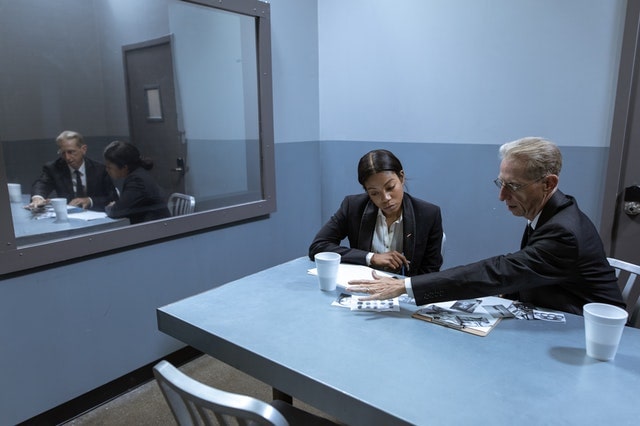Recognizing the Role of a Post-Conviction Attorney in Looking For Justice After a Criminal Sentence
In the complicated landscape of post-conviction legal process, the duty of a post-conviction attorney is critical in browsing the path to justice after a criminal sentence. Beyond the confines of a test, these lawyers take part in a complex method focused on revealing new evidence, tough legal mistakes, and promoting for their clients' civil liberties. The details of post-conviction work need a blend of lawful acumen, investigative abilities, and calculated thinking to untangle the complexities of a case and seek methods that may have been overlooked or underexplored. As the quest of justice extends past the confines of first proceedings, the duty of a post-conviction lawyer arises as a sign of wish for those looking for to rectify oppressions and redeem their civil liberties within the legal system.
Post-Conviction Lawyer's Investigatory Job
Post-conviction legal representatives engage in thorough investigatory work to discover new proof, procedural mistakes, or misbehavior that can potentially cause reversing a conviction. This investigatory phase is critical in the post-conviction process as it intends to determine any kind of ignored information or lawful mistakes that may have affected the outcome of the preliminary trial. Post-conviction attorneys explore case data, witness testimonies, and legal documents with a fine-tooth comb, browsing for any disparities or abnormalities that can be premises for appeal.
With extensive examination, post-conviction lawyers intend to clarify prospective oppressions that might have happened throughout the original trial. They might conduct interviews, seek advice from specialists, and review forensic evidence to construct a compelling instance for their customers. By scrutinizing every element of the lawful proceedings, post-conviction attorneys work tirelessly to reveal any variables that may have influenced the decision. Eventually, their investigatory job plays a pivotal function in the quest of justice and the possible reversal of wrongful sentences.
Crafting Appeals and Petitions
In the pursuit of justice after a conviction, skilled lawyers carefully craft charms and petitions to present engaging debates for the reconsideration of lawful choices. Crafting allures and requests needs a deep understanding of the legal system, attention to detail, and strategic thinking. Post-conviction lawyers analyze test documents, determine prospective errors or violations of rights, and create legal arguments to test the sentence or sentence.
When crafting a charm, lawyers concentrate on highlighting lawful errors that may have influenced the end result of the situation. They investigate case regulation, laws, and legal precedents to sustain their disagreements. Petitions, on the various other hand, may entail offering new proof that was not offered throughout the test or showing adjustments in the regulation that call for a testimonial of the conviction.
Moreover, post-conviction legal representatives need to comply with rigorous step-by-step regulations and deadlines when filing appeals and requests. They should offer their disagreements clearly and persuasively to persuade the court to provide alleviation to their clients. With meticulous crafting of charms and requests, post-conviction attorneys make every effort to safeguard justice for individuals who have been wrongfully founded guilty or unfairly sentenced.

Pursuing Post-Conviction Alleviation
Post-conviction alleviation includes a range of legal mechanisms created to challenge the credibility of a conviction or sentence. Post-conviction attorneys play an essential duty in navigating these complex treatments, making certain that all legal options are checked out to correct injustices that may have occurred throughout the test or sentencing stage.
One usual kind of post-conviction relief is filing a petition for post-conviction relief, generally based on insurance claims of inefficient help of advice, prosecutorial misbehavior, recently found evidence, or constitutional violations. Experienced post-conviction lawyers possess the abilities and expertise essential to recognize sensible lawful insurance claims, carry out investigations, and present compelling debates to safeguard alleviation for their customers.
Using Forensic Evidence
When challenging a sentence or sentence, the critical application of forensic proof can be a powerful device in post-conviction lawful procedures. Forensic evidence incorporates a wide variety of scientific techniques used to explore criminal activities and develop realities in court. Post-conviction legal representatives can utilize forensic evidence to challenge the legitimacy of convictions by presenting brand-new scientific findings that were not readily available throughout the original trial.

Taking Part In Sentence Adjustments
Post-conviction attorneys may discover the opportunity of sentence adjustments as a legal opportunity to deal with disproportionate or unjustified sentences passed on in criminal instances. Sentence adjustments involve seeking adjustments to the regards to an accused's sentence after a conviction has taken area. These alterations can include decreasing the length of a sentence, modifying the sort of punishment imposed, or discovering different sentencing choices.
Post-conviction lawyers can seek sentence adjustments through various lawful mechanisms, such as submitting movements for sentence reduction, appealing for thoughtful release, or discussing plea offers for lowered sentences. They should carefully evaluate the circumstances of the case, assess the lawful premises for looking for a modification, and existing compelling debates to the court supporting the demand for a revised sentence.
Participating in sentence adjustments requires a detailed understanding of criminal legislation, punishing guidelines, and the specific treatments associated with seeking post-conviction alleviation. Post-conviction lawyers play an essential duty in advocating for reasonable and simply results by tough sentences that are unduly harsh or do not straighten with the concepts of justice.
Conclusion
To conclude, the duty of a post-conviction lawyer is critical in seeking justice after a criminal conviction. Via investigative work, crafting charms and applications, pursuing post-conviction alleviation, using forensic evidence, and taking part in sentence alterations, these legal experts play an essential role in advocating for their clients and making certain that their rights are supported within the criminal justice system. Their devotion and experience are important in navigating the intricacies of post-conviction process and attaining a fair outcome for individuals dealing with criminal convictions.